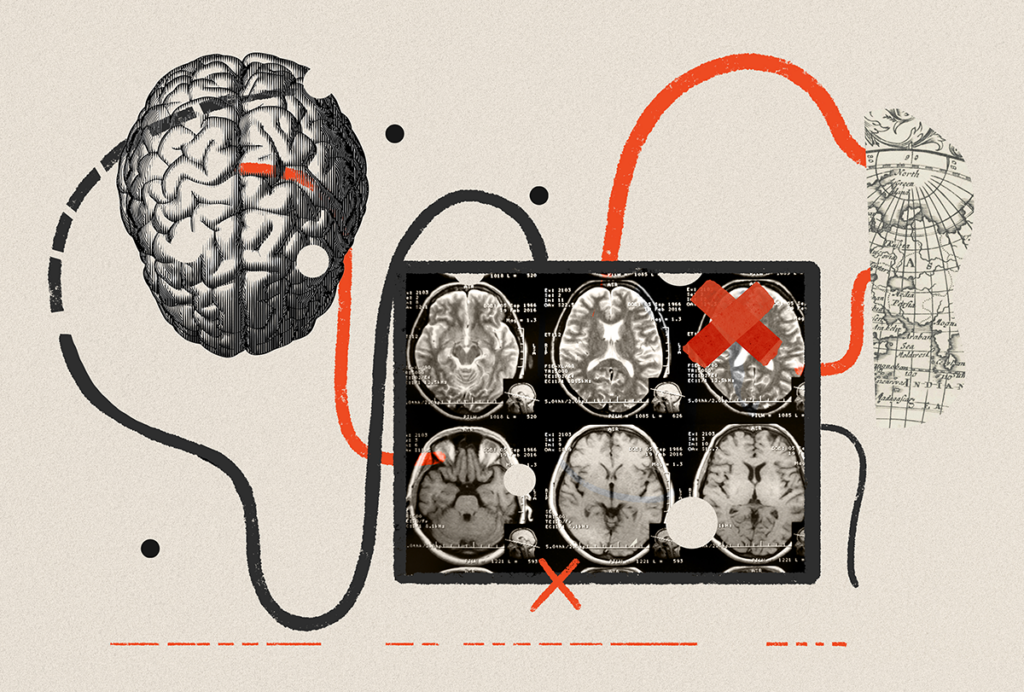Simon E. Fisher is director of the Max Planck Institute for Psycholinguistics and Professor of Language and Genetics at the Donders Institute for Brain, Cognition and Behaviour in Nijmegen, the Netherlands. He is also an honorary research fellow at the Wellcome Trust Centre for Human Genetics (WTCHG) in Oxford, UK. Simon obtained his Natural Sciences degree at Trinity Hall, Cambridge University, followed by a DPhil at the Genetics Unit of the Biochemistry Department, Oxford University. For his postdoctoral research he joined Prof. Anthony Monaco’s group at the WTCHG in Oxford, and worked on identifying genetic factors that contribute to developmental disorders such as dyslexia and speech and language impairments. During this time he and his colleagues identified FOXP2, the first case of a gene mutated in speech and language impairment. In 2002, Simon was awarded with a Royal Society Research Fellowship and became head of his own laboratory at the WTCHG, where he used state-of-the-art methods to uncover how language-related genes influence the brain. From 2007-10 Simon was also the Isobel Laing Fellow in Biomedical Sciences at Oriel College, Oxford, where he taught Biochemistry and Medical Genetics. In 2010 he was appointed director of a new department specifically devoted to “Language and Genetics” at the Max Planck Institute in Nijmegen. Simon is author of over 75 journal articles, including peer-reviewed research in Nature, Nature Genetics, New England Journal of Medicine, Cell, Current Biology and American Journal of Human Genetics, and review articles in Nature Reviews Genetics, Nature Reviews Neuroscience, Annual Review of Neuroscience, Trends in Genetics and Trends in Cognitive Sciences. He has an h-index of 41. Simon is frequently invited to talk at leading international conferences across a diverse range of fields, and has also spoken to school, student and public audiences on a number of occasions. His research has a strong interdisciplinary remit, integrating data from genetics and genomics, psychology, neuroscience, developmental biology and evolutionary anthropology. Simon is an elected fellow of the Society of Biology, and his awards include the Francis Crick Prize Lecture in 2008, and the inaugural Eric Kandel Young Neuroscientists Prize in 2009.
Simon Fisher
Director
Max Planck Institute for Psycholinguistics
Explore more from The Transmitter
After NINDS director ouster, 40 neuroscience organizations press U.S. Congress for oversight over hiring process
A letter signed by the groups asks Congress to ensure that scientific expertise remains a priority in the search for a new director of the National Institute of Neurological Disorders and Stroke.

After NINDS director ouster, 40 neuroscience organizations press U.S. Congress for oversight over hiring process
A letter signed by the groups asks Congress to ensure that scientific expertise remains a priority in the search for a new director of the National Institute of Neurological Disorders and Stroke.
BRAIN Initiative researchers ‘dream big’ amid shifts in leadership, funding
But whether the initiative’s road map for the next decade is feasible remains an open question.

BRAIN Initiative researchers ‘dream big’ amid shifts in leadership, funding
But whether the initiative’s road map for the next decade is feasible remains an open question.
Neuroscience, BRAIN Initiative gain budget in ‘bad’ NIH funding bill
The bill goes before the House of Representatives today and outlines increases for neuroscience-related research—including a 33 percent increase to the BRAIN Initiative—but maintains a multiyear spending approach that could limit the number of grants awarded overall.

Neuroscience, BRAIN Initiative gain budget in ‘bad’ NIH funding bill
The bill goes before the House of Representatives today and outlines increases for neuroscience-related research—including a 33 percent increase to the BRAIN Initiative—but maintains a multiyear spending approach that could limit the number of grants awarded overall.